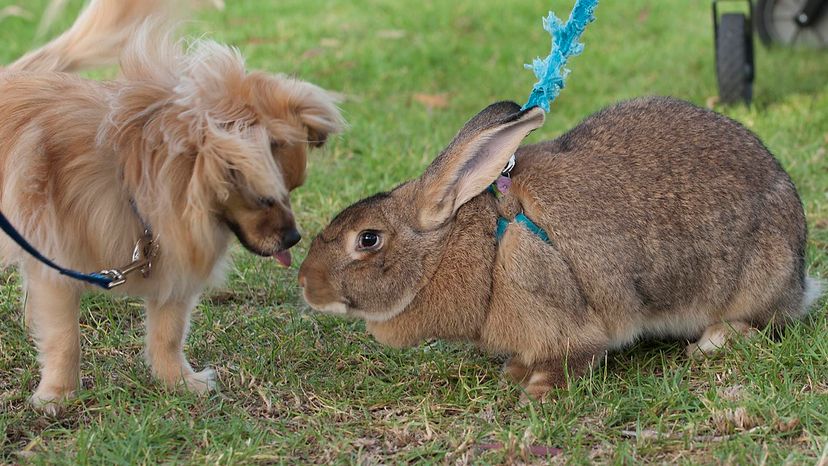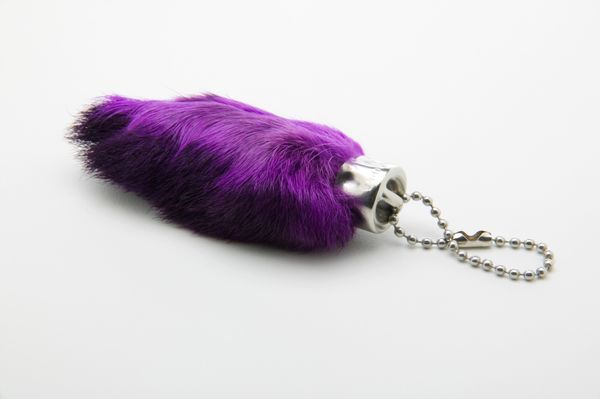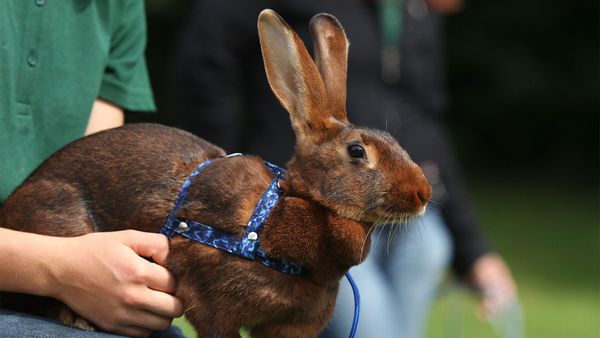Much like dogs and cats, "Flemmies" make affectionate, curious, laid-back pets, as long as they're trained and handled properly from a young age. They aren't very active — they like to spend their days eating hay and sleeping — plus they can be trained to use a litter box, so they can be easy to live with. Because they're strong and large, they're great with children since they can escape a bit of less-than-gentle treatment. One drawback is they reportedly love to dig, and can therefore be a bit destructive if they don't have an outlet for this behavior. They also really love to chew, so if you're considering allowing your Flemish giant to roam the house freely, charger and lamp cords are in danger — and could even injure the rabbit.
But just because Flemmies can hold their own with children and even other pets, it doesn't mean they shouldn't be treated with the utmost gentleness. In fact, in 2017, Simon, a healthy young Flemish giant who was a favorite for becoming the largest rabbit in the world — his father Darius grew to be 50 pounds (22.5 kilograms) and over 3 feet (1 meter) long — died in the cargo hold of a flight from London to Chicago. Although the cause of Simon's death is a mystery, it goes to show that Flemmies are less hardy that you might imagine:
"You've got to be mindful — even though they're big, they're still a prey animal," says Moses. "They're large, but they're sensitive. They're more sensitive to heat than cold, and they can die of fright like any other rabbit. They need lots of fresh water. Lots of vets don't treat rabbits, but they still need checkups."



